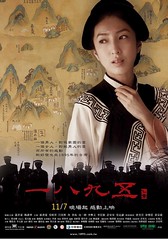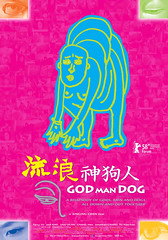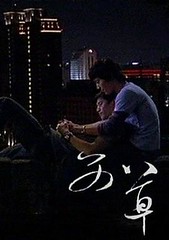
[ About the Film ]
After losing the Sino-Japanese war (甲午戰爭) in 1894, the imperial Chinese government signed the Treaty of Shimonoseki (馬關條約) with the Japanese Empire, giving Taiwan and Penghu to Japan. Groups of Taiwanese wishing to defend their own land and identity, organized armed resistance against the Japanese troops and established the Taiwan Republic, a “Republic” that only lasted five days before all the Chinese high officials fled back to China when the Japanese troops landed in the northern fishing village of Taiwan. All of those who were left, including this Hakka group in the middle part of Taiwan, had to fight for what they believe in all on their own, without the assistance promised to them, to the very end. What follows after 1895, was a Japanese reign lasting for half a century.”
[ Documenting One’s Own History ]
Out of the many Taiwanese films I’ve watched so far, what makes 1895 one of the most moving films is the fact that it attempts to recapture the patriotism and struggle of a minority group in Taiwan in maintaining their own heritage and cultural identity against the intruders in an important transitional period in Taiwan history. The plot is based on real people and historical incidence; the main language spoken in the film is not Mandarin nor Taiwanese (Fukien) but Hakka – a less familiar dialect spoken by Taiwanese with the Hakka ancestral heritage. The film amplifies the determination of a small group of Hakka farmers and educated thinkers untrained in modern military warfare sets about giving their lives in defending their home and ways of living, however small their force might be to the rising Japanese Empire.
It is not a film about the monstrosity of war like most war documentary with shocking and gruesome images. It is rather a film that explores the mixed emotions of the invaders, the defenders and the family back home. The Japanese Prince, who was in command of the conquest of Taiwan, appears as a well-educated man who wants peaceful reconciliation rather than the eventual “wiping out” of all that came against his troop. Young Japanese soldiers who are dying of epidemic beg their doctor to lie to their family that they died gloriously in battlefield. The mothers and wives back home in the Hakka village carried on with their everyday work away from the horror of the battlefield, fearing that every time their husband or son leaves would be their last time seeing them but could not stop them from leaving them again. The home-defenders, being betrayed by the Chinese high officials who urged them to rise up and fight for their land and people, are left with broken promise for supplies, support and dream, and had to fight their way to the very end, which ultimately means death alone.
When I watched the film in a Taipei cinema, during a Q&A period with the film director and the leading male actor after the film, many in the audience were in tears. Many were touched by the fact that someone has finally made a film based on their people’s history. A young girl in the audience whose ancestors happened to be from the family (天水堂) in which the film was based burst out tearing as she thanked the film director and production team for documenting their history. Others were surprised to learn about this part of history and were moved by the sentiment and burst out cheering “國片加油!” (“Support Taiwanese Films!”).
Historical happenings are often the subject for film makers to develop into stories that would draw many viewers to the film makers' interpretation of the historical events and to remind people that certain things will never be forgotten although time has moved on. For 1895 in Formosa, the stories of a minotiry group in Taiwan defending for what they believe in at period of political instability reminds or introduces a chaptern in history that history itself might have forgotten.
----------------------------------------------------
Taken from Original publication by Tiffany Lee (perladipace)
刊登於多倫多大學台灣同學會 ROCSAUT 冬季社刊 2009.
Published in University of Toronto ROCSAUT (R.O.C. Student Association U. of Toronto) Publication Winter 2009.








No comments:
Post a Comment